
Recent Publications

Diversity is Only Skin-Deep: Intercultural Inclusion in Ontario FSL Classrooms
Despite growing demographic diversity among French-speaking newcomers to Canada, as well as recent curricular changes at the provincial level, many French as a Second Language (FSL) classrooms in Ontario remain grounded in Eurocentric norms. This article explores superficial gestures of inclusion in the classroom that mask deeper systemic exclusion, thus hindering the success of underrepresented students. We examine how current institutional paradigms and pedagogical practices tend to tokenize non-European voices, romanticize the notion of la Francophonie, and reinforce colonial hierarchies of power. In response, we propose practical strategies and critical frameworks to support educators in moving beyond performative diversity towards meaningful, anti-oppressive inclusion. Centering collective educator self-reflection, and a fundamental reimagining of French language education, we invite Ontario educators and policymakers to re-envision the FSL classroom as a transformative, intercultural space rooted in critical inquiry, plurilingual identity affirmation, and global equity.
Learn Moreabout Diversity is Only Skin-Deep: Intercultural Inclusion in Ontario FSL Classrooms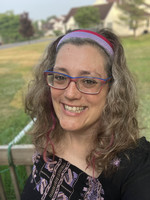
Why reflexivity matters for critical language education
Reflexivity is often treated as a sign of methodological rigor meant to signal being “serious” (e.g., rational, careful, credible) while leaving the politics of knowledge-making intact. This article argues that reflexivity is central to critical language education because it recenters the who of representation: who speaks, from where, with what responsibilities, and toward which ethical ends. We conceptualize reflexivity as a lifelong praxis with four entangled facets (i.e., positioning, criticality, awareness, reciprocity) and situate this praxis within Indigenous-informed orientations that foreground relational accountability and the de/re-centering of the self. Tracing reflexivity across critical, feminist, contemplative, and Indigenous epistemic traditions, we critique Western Cartesian logics that privilege objectivity, binary reason, and extractive representation, including the ontological severance of humans from nature. Against epistemic demands for coherence and neutrality, we argue that reflexivity reframes messiness, contradiction, and in-betweenness as evidence of power, history, and entanglement rather than problems to be resolved. We also model reflexivity through disclosures of complex transnational and mixed-race positionalities as ethical labor that unsettles who is authorized to know in language education. We conclude that reflexivity is an ongoing practice of unlearning and relearning that ethically reorients language education amid persistent coloniality and rapidly changing ecologies.
Learn Moreabout Why reflexivity matters for critical language education
Reflexivity in Language Education
In this chapter entry, I engage the concept of reflexivity as concerns language education by illuminating some of the multiple facets of reflexivity (positioning, criticality, awareness, and reciprocity). In doing so, I firstly acknowledge as well as disclose some of my own ideological and epistemological positionings in relation to reflexivity. Accordingly, I take each of these facets and weave them with some of the ways reflexivity has evolved and been conceptualized as both a concept and as a practice. Finally, I conclude this chapter by (re)emphasizing how and why reflexivity will remain ever more important as we move forward and look to the future.
Learn Moreabout Reflexivity in Language Education
Parent and Caregiver Resource Guide: Supporting Knowledge & Skills in Managing Anxiety Using Storybooks
This guide is intended primarily for parents or caregivers to assist their child who may be struggling with early symptoms of anxiety. This guide provides an overview of anxiety, different types of anxiety, cognitive-behavioural informed skills and approaches, as well as guiding questions on how to use storybooks to guide conversations with children for a range of anxiety challenges.
Learn Moreabout Parent and Caregiver Resource Guide: Supporting Knowledge & Skills in Managing Anxiety Using Storybooks
Storybook Finder: A Companion to the Parent and Caregiver Resource Guide on Supporting Knowledge & Skills in Managing Anxiety Using Storybooks
This Storybook Finder Guide was created to accompany the Parent and Caregiver Resource Guide: Supporting Knowledge and Skills in Managing Anxiety Using Storybooks. It includes additional storybooks organized by anxiety-related concerns. To help support discussion with your child after reading, a set of general guiding questions is also included.
Learn Moreabout Storybook Finder: A Companion to the Parent and Caregiver Resource Guide on Supporting Knowledge & Skills in Managing Anxiety Using Storybooks
Exploring the factors driving L1 use in Jordanian secondary EFL classrooms
This qualitative study investigated factors contributing to the use of the first language (L1) in English as a Foreign Language (EFL) classrooms in Jordanian public secondary schools. Using convenience sampling, 25 participants were recruited: four EFL supervisors from an education directorate, 10 EFL teachers, and 11 students from Grades 11 and 12 across multiple public secondary schools. Data were collected through individual semi-structured interviews. Thematic analysis was employed, following open, axial, and selective coding to extract key themes. The findings reveal that L1 use is shaped by a constellation of interrelated factors: teacher-related (e.g. limited L2 proficiency and underuse of listening and speaking activities), student-related (e.g. low L2 proficiency and exam-oriented learning), institutional (e.g. overcrowded classrooms, lack of resources), and systemic (e.g. the high-stakes Tawjihi exam that sidelines communicative competence). A notable policy-practice gap emerged, where supervisors emphasized idealistic expectations for L2 use, while teachers and students described L1 reliance as a pragmatic response to contextual constraints. The findings underscore the need for policy reforms, targeted professional development, and assessment redesign that acknowledge on-the-ground realities and promote meaningful L2 engagement.
Learn Moreabout Exploring the factors driving L1 use in Jordanian secondary EFL classrooms
Exploring the factors driving L1 use in Jordanian secondary EFL classrooms
This qualitative study investigated factors contributing to the use of the first language (L1) in English as a Foreign Language (EFL) classrooms in Jordanian public secondary schools. Using convenience sampling, 25 participants were recruited: four EFL supervisors from an education directorate, 10 EFL teachers, and 11 students from Grades 11 and 12 across multiple public secondary schools. Data were collected through individual semi-structured interviews. Thematic analysis was employed, following open, axial, and selective coding to extract key themes. The findings reveal that L1 use is shaped by a constellation of interrelated factors: teacher-related (e.g. limited L2 proficiency and underuse of listening and speaking activities), student-related (e.g. low L2 proficiency and exam-oriented learning), institutional (e.g. overcrowded classrooms, lack of resources), and systemic (e.g. the high-stakes Tawjihi exam that sidelines communicative competence). A notable policy-practice gap emerged, where supervisors emphasized idealistic expectations for L2 use, while teachers and students described L1 reliance as a pragmatic response to contextual constraints. The findings underscore the need for policy reforms, targeted professional development, and assessment redesign that acknowledge on-the-ground realities and promote meaningful L2 engagement.
Learn Moreabout Exploring the factors driving L1 use in Jordanian secondary EFL classrooms
Impacting STEM teacher candidates’ views and attitudes toward online teaching: A comparative analysis of two cohorts during the COVID-19 pandemic.
Science, technology, engineering, and mathematics (STEM) teachers in Canada faced a wide array of challenges during the COVID-19 pandemic, which adversely affected their attitudes toward online teaching and their pedagogical practices. Guided by self-regulated learning and the technology acceptance model (TAM), this study focuses on STEM teacher candidates’ (TCs’) preparation for teaching online in a digitally enriched STEM education course in a teacher education program at a Canadian university. The authors present a two-year study of different cohorts of TCs enrolled in the course and address the following research questions: (1) What attitudes and views toward online teaching are held by the two cohorts of STEM TCs? (2) What are the impact, successes, and challenges of the STEM course on TCs’ attitudes toward online teaching in each of the two cohorts? Adopting a mixed-method case study design, data sources in this study included pre-post questionnaires administered at the beginning and the end of the course. Overall, results show TCs’ initial negative attitudes toward online teaching, yet a positive impact of the course on enhancing their views and accepting and using online teaching. This research informs STEM teacher educators and researchers about the effectiveness of similar professional development practices to ensure high-quality online education for all students.
Learn Moreabout Impacting STEM teacher candidates’ views and attitudes toward online teaching: A comparative analysis of two cohorts during the COVID-19 pandemic.
Exploring students’ experiences in an innovative interdisciplinary medical sciences master’s program
This research explores the experiences of students in an innovative Master of Science in Interdisciplinary Medical Sciences (MSc IMS) program at a Canadian university. The course-based program focuses on interdisciplinary education and experiential learning to foster students’ academic, professional, and personal skill development. The article addresses the following research questions: (1) What are students’ perceptions of the MSc IMS program impact on their skills and personal and professional development; (2) what successes and challenges do students encounter throughout the program; and (3) how do students perceive the value and benefit of various program components? The research adopts a mixed methods approach to detail the reflections of the inaugural cohort of students enrolled in the program. Findings show that graduate students appreciated the interdisciplinary approach to teaching and learning. Additionally, students reported the positive impact of the program on their research skills, problem-solving, and personal and professional development. Students also believed that the program provided more and better opportunities for them in terms of career prospects and/or further studies. This research informs educators and curriculum designers about the importance of interdisciplinary programs in higher education, specifically in medical sciences education. Implications for developing and revising programs in higher education are discussed.
Learn Moreabout Exploring students’ experiences in an innovative interdisciplinary medical sciences master’s program
Catch the Bus©: Development and validation of a gamified travel training application for students with exceptionalities.
Early attempts to teach travel training to people with intellectual and/or developmental disabilities (IDDs) utilized simulation, role playing, and prompting systems; however, these studies utilized interventions that were not age appropriate. More recently, non-interactive computer-based video instruction has been shown to be temporarily effective in teaching young adults diagnosed with IDDs how to signal the bus driver when they wanted to disembark, but the lack of interactivity precluded lasting outcomes. To address this gap, the authors document the creation of a gamified training application, Catch the Bus©(CtB), that uses gamification dynamics, mechanisms, and components. Through the lenses of goal-setting theory, the technology acceptance model, and social cognitive theory CtB training emulates progression as users acquire skills necessary to scaffold to the next level of training. CtB training explicitly focuses on elapsed time to (a) circumvent the expectation of conventions of near-instantaneous travel often associated with video games, and (b) foster time management skills. To explore the effectiveness of CtB training, a mixed methods pilot case study was conducted with individuals having IDDs. The study focused on the efficacy and impact of CtB training on participants' skills and anxiety related to public transit. Findings indicate that CtB training resulted in an increase in participants' self-efficacy in terms of planning a bus trip to new destinations, utilizing bus route maps, and transferring buses correctly. Additionally, CtB training decreased participants' anxiety associated with public transportation usage and increased participants' confidence in navigating public transit.
Learn Moreabout Catch the Bus©: Development and validation of a gamified travel training application for students with exceptionalities.
Cautious excitement, hopeful skepticism: An ‘imagined’ interview with AI.
As educational researchers of language and intercultural communication, we find this moment particularly timely for contributing to the growing dis- course around AI. In this chapter, we intentionally position ourselves at the intersection of AI and interculturality, using our inquiry as a kind of time capsule to document where we currently stand while also reflecting on our perceptions of and (dis)engagement with AI. Methodologically, we thought it could be interesting to do something a little unconventional as we explored our own reflections, current realities, experiences, fears and hopes, embarking upon new frontiers and intersections of AI and interculturality. So, our chapter is mainly comprised of a mock podcast interview that has taken place between the authors (ourselves, two humans) and an interviewer, who happens to be an AI.
Learn Moreabout Cautious excitement, hopeful skepticism: An ‘imagined’ interview with AI.
Illuminating two secondary schoolteachers’ praxes on a ‘terrain of freedom:’ Lessons for teacher education
This paper attunes to the stated focus of this special issue—teacher subjectivities on a terrain of freedom—to consider the qualities, possibilities and limits of teachers’ praxes and development upon this ‘terrain.’ In response to the call, we explore three critical questions: 1) Where does the teacher’s freedom lie amidst required protocols and standardization?; 2) Can teachers transcend how they have been conceived and conditioned?; and 3) How can teachers engage in transformative development? Through a "poetics of teaching," inspired by Hansen (2004), we frame teaching as a curricular and pedagogical art form that melds interdisciplinary, intellectual, aesthetic, and moral dimensions to enrich the professional and personal livelihoods of teachers and, in turn, students. This approach supports UNESCO's (2021) principles of lifelong professional learning and the nurturing of the different global and local ecosystems that connect to our K-12 classrooms. Drawing on empirical research from a pilot study, this article highlights the transformative practices of two secondary school teachers as they navigate and expand upon their professional “terrain of freedom,” demonstrating different institutional possibilities and constraints. Our findings suggest that teacher education programs should cultivate environments that encourage innovation, critical reflection, and ethical engagement, aligning with UNESCO’s calls for a new social contract that advocates for teachers as agents of change in reimagining education for more just and sustainable futures. These lessons learned from our pilot study underscore the need, as we suggest, for teacher education to nurture, support, and sustain professional educators capable of transforming curriculum, their pedagogical, and classroom communities toward and on behalf of the public good.
Learn Moreabout Illuminating two secondary schoolteachers’ praxes on a ‘terrain of freedom:’ Lessons for teacher education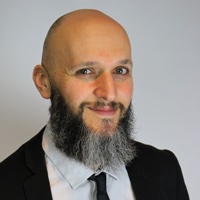
No Conference Tote Bag is Worth This: An Analysis of Academic Border Resistance.
Beginning in January 2025, increasingly restrictive border control measures between Canada and the United States have substantially altered the contingencies governing academic mobility. The Canadian Association of University Teachers (CAUT) 2025 Advisory on Travel to the United States is an indication of how enhanced surveillance, electronic device searches, and differential treatment of travelers, based on their national origin, political views, research topics, or gender identity, function as aversive control at international borders. We examine these border mechanisms through a behavior science lens, demonstrating how they function to constrain academic freedom and mobility. By understanding these dynamics through a culturo-behavior science lens, academic institutions can develop effective collective responses that maintain scholarly productivity while protecting vulnerable community members and supporting advances in scholarship.
Learn Moreabout No Conference Tote Bag is Worth This: An Analysis of Academic Border Resistance.
#ContentAnalysisofABAonTwitter: Finding Behavior Analysis’ Heart on Social Media.
Collecting data on social topics by analyzing verbal behavior on social media is a modern approach to assessing social validity. Given the evolving public perception related to applied behavior analysis (ABA), we sought to gain an objective understanding of online discourse related to the field. In an earlier project, we explored the relevance and sentiment (i.e., positive, negative, neutral) of a stratified sample of Twitter/X posts related to ABA (e.g., #ABA, #BehaviorAnalysis, #appliedbehaviouranalysis) across 11 years (2012–2022). Tweets with negative sentiment garnered engagement scores that were about three times higher than those of positive and neutral tweets. However, the nature of the discourse was unknown. In the present study, we extended the results by conducting a content analysis of a subsample of tweets categorized as indicating either a bias toward or against ABA. Tweets supporting ABA focused on promotion, positive effects on recipients, effective procedures, financial support, and ethical practices. Tweets against ABA highlighted harmful effects on recipients, criticisms of specific procedures, ableist assumptions, and general anti-ABA sentiments. The results were interpreted according to social validity and invalidity, and disability studies perspectives. Our findings have meaningful social implications for ABA practitioners, those who access our services, and the general public.
Learn Moreabout #ContentAnalysisofABAonTwitter: Finding Behavior Analysis’ Heart on Social Media.
Art in Context: A Multi-Level Analysis of Art
Experiencing art, both as the artist and observer, plays a major role in experiencing humanity. The current paper approaches art through a behavioral lens rooted in functional contextualism, where producing and observing art are behaviors that emerge and evolve within a multilevel functional context, encompassing natural selection, operant selection, and cultural selection. At the biological level, evolutionary pressures have shaped neurological processes and physiological responses that support artistic engagement. At the operant level, relational frame theory provides insights into how language and experience transform the function of art, and, bi-directionally, how art transforms human experience. At the cultural level, art propagates shared practices and values through mechanisms like metacontingencies and cultural cusps, facilitating intergenerational transmission and societal change. Potential applications include therapeutic interventions leveraging art to promote psychological flexibility, educational initiatives fostering artistic appreciation, and community programs enhancing collective resilience. By integrating biological, behavioral, and cultural perspectives, this analysis highlights art's unique role as a dynamic, adaptive component of human life, capable of enriching and transforming individual and collective experiences.
Learn Moreabout Art in Context: A Multi-Level Analysis of Art
The Effects of Regulatory Cost on Demand for the Opportunity to Practice of Behavior Analysis in Ontario
This study applied behavioral economic methods to assess the effects of regulatory cost on demand for the opportunity to practice behavior analysis in Ontario using a hypothetical purchase task. The provincial government of Ontario recently passed legislation to expand the psychology regulatory body to include behavior analysts. Professional regulation has been a key longstanding priority for many professionals in the province and the Ontario Association for Behaviour Analysis (ONTABA, 2021) alike. This is an important step in public protection policy, the professionalization of the practice of applied behavior analysis (ABA), and standards of practice in the province. This study aimed to inform part of the process using an operant demand framework because fees are required to operate regulatory bodies, which implies that professionals interested in becoming regulated health professionals must pay initial and ongoing fees. Demand was analyzed using the exponentiated model of demand. Participants included 60 practitioners, who indicated they were board certified behavior analysts and Ontario residents. The findings indicated that participants’ mean Pmax value (the price at which consumption becomes elastic) was $624.65 at the aggregate level. These results may indicate Ontario behavior analysts’ perceptions of the acceptability of varying costs associated with regulation. Further, the study demonstrates the applied utility of behavioral economic methods to assess demand for commodities within behavior analysis.
Learn Moreabout The Effects of Regulatory Cost on Demand for the Opportunity to Practice of Behavior Analysis in Ontario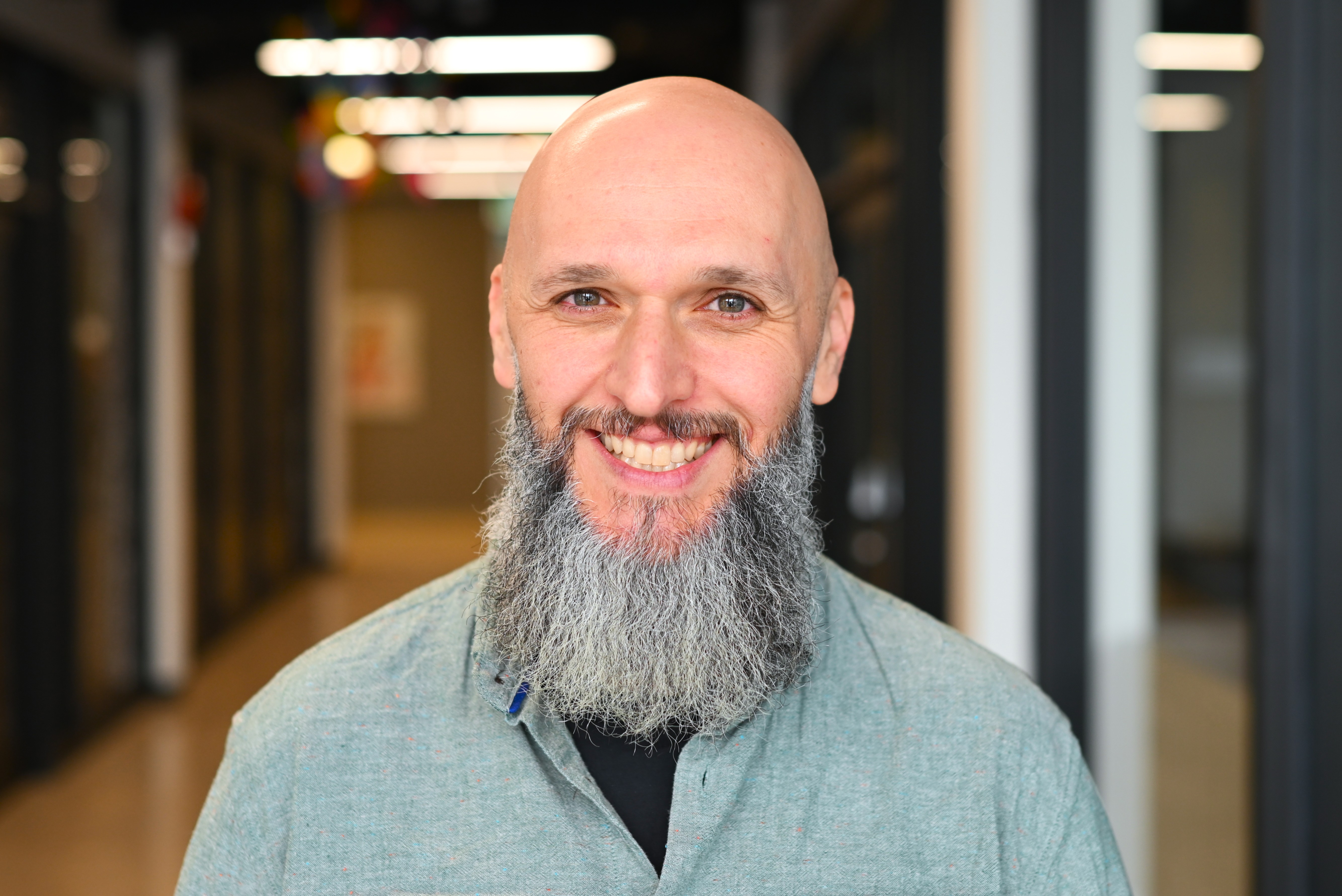
#ContentAnalysisofABAonTwitter/X: Finding Behavior Analysis’ Heart on Social Media. Behavior Analysis in Practice
Collecting data on social topics by analyzing verbal behavior on social media is a modern approach to assessing social validity. Given the evolving public perception related to applied behavior analysis (ABA), we sought to gain an objective understanding of online discourse related to the field. In an earlier project, we explored the relevance and sentiment (i.e., positive, negative, neutral) of a stratified sample of Twitter/X posts related to ABA (e.g., #ABA, #BehaviorAnalysis, #appliedbehaviouranalysis) across 11 years (2012–2022). Tweets with negative sentiment garnered engagement scores that were about three times higher than those of positive and neutral tweets. However, the nature of the discourse was unknown. In the present study, we extended the results by conducting a content analysis of a subsample of tweets categorized as indicating either a bias toward or against ABA. Tweets supporting ABA focused on promotion, positive effects on recipients, effective procedures, financial support, and ethical practices. Tweets against ABA highlighted harmful effects on recipients, criticisms of specific procedures, ableist assumptions, and general anti-ABA sentiments. The results were interpreted according to social validity and invalidity, and disability studies perspectives. Our findings have meaningful social implications for ABA practitioners, those who access our services, and the general public.
Learn Moreabout #ContentAnalysisofABAonTwitter/X: Finding Behavior Analysis’ Heart on Social Media. Behavior Analysis in Practice
Sawubona
The word Sawubona is one of the most beautiful sentiments. It comes from the Zulu people. Literally, it means ‘We see you’ and recognizes that sight is a dialogue that asks us to reflect on the present moment as we greet each other with that which sees through each of us. It recognizes that consciousness is connected to the ancestral, and celestial realms and that we are all connected. It is a way of being that makes an offering of our presence, granting each other the freedom to be who we are and to be witnessed.
Learn Moreabout Sawubona
Catch the Bus©: using a gamified application to introduce travel training for students with exceptionalities
Gamified learning is becoming more prevalent in educational settings. In this study the authors use a gamified web-based application, Catch the Bus© (CtB) to teach public transportation skills. Navigating public transportation is key to independent living. Existing supports for public transportation training are inadequate for individuals with exceptionalities due to a lack of age appropriateness and immediate ridership feedback. Thus, this research explored the potential of CtB in terms of (i) alleviating anxiety and promoting confidence, and (ii) teaching public transportation skills such as problem solving, map reading, time management, and digital literacy in individuals with exceptionalities. Participants in this mixed-methods study included high school students with exceptionalities (e.g. social and generalized anxieties, dyslexia, autism) in a life skills course taken as preparation for transitioning to independent living. Data sources included pre- post-CtB training surveys and journal reflections of applied CtB training as participants navigated their city. Findings indicate CtB is an effective gamified digital tool for (i) teaching public transportation skills, (ii) promoting confidence with using public transportation, and (iii) alleviating public transportation-related anxiety. Interestingly, findings also revealed a disconnect between participants’ perceived and actual digital competencies, thus warranting further investigation.
Learn Moreabout Catch the Bus©: using a gamified application to introduce travel training for students with exceptionalities
Reflexivity
Though relatively recent in applied linguistics and intercultural education (Byrd Clark & Dervin, 2014; Byrd Clark, 2020; Dervin, 2022; Chen & Byrd Clark, 2023), reflexivity, as a construct, it is important to acknowledge that reflexivity is not a new phenomenon for the social sciences. Conceptualizations of reflexivity have been significantly influenced and explicitly theorized by the fields of anthropology (Clifford & Marcus, 1986; Wikan, 2002), psychology (Moscovici, 1984; Thích, 1997), sociology (Bourdieu, 2003; Bourdieu & Wacquant, 1992; Lahire, 2008), and philosophy (Huang et al., 2017; de Souza, 2019). The word reflexivity can be traced back to the Latin word for bending or flectere. The prefix re- indicates a backward movement or some sort of repetition. To be reflexive means that an entity, system or structure bends back, returns or refers to itself. Researchers might confuse the word transparency with being the equivalent to or synonymous with reflexivity, but practicing reflexivity is about more than being transparent . . . and it’s more than making visible the researcher’s dispositions and actions to acknowledge their own presence within the research processes. Whilst reflexivity can represent an ongoing, multifaceted, and dialogical process, it can also at times be messy, complex, and challenging, causing discomfort yet infused with potential transformation for all involved in the doing of the research.
Learn Moreabout Reflexivity
Ecotranslanguaging
Ecotranslanguaging is a relatively new concept offered by Byrd Clark (2023). It is an attempt to engage new ways of being and communicating that will help people restore the sacredness of communication and of re-engaging Spirit in everyday life. It is a call to remember the importance of looking at language as an action and verb as well as the ‘doing’ of language that cultivates emotional discernment and relational attunement (see attuning/attunement, this volume), especially as concerns social justice,1 to bring about restoration for Earth. Why this concept? This concept comes from my deep care about how people communicate with one another and their fellow beings as well as the desire to inspire kind, compassionate, deep, reflexive ways of communing by supporting a more conscious linguistic reciprocity with one another and exploring ways of attuning and discerning that can help people to heal themselves, one another, and their relations with nature.
Learn Moreabout Ecotranslanguaging
Attuning/Attunement
Attuning/Attunement resonates deeply with an Indigenous epistemology of deep listening that refers to a way of being in the world which is grounded in a deep connection with nature, with one another, and with the environment. In Indigenous cultures around the world, attunement has been seen as a fundamental aspect of spiritual and ecological awareness, and is often practiced through rituals and ceremonies that help individuals to connect more deeply with each other as well as with the more-than-human world. For example, Tooth and Renshaw (2020) provide a concrete example by writing about children’s relationships with nature when encouraged through Aboriginal dadirri methods of ‘attentiveness to and feeling in place’ that result in relationships of ‘love, care and solidarity’ with ‘nature’ (p. 1424). It is this definition I shall return to and explore more extensively as concerns decolonializing interculturality in research.
Learn Moreabout Attuning/Attunement
Art in Context: A Multi-Level Analysis of Art.
Experiencing art, both as the artist and observer, plays a major role in experiencing humanity. The current paper approaches art through a behavioral lens rooted in functional contextualism, where producing and observing art are behaviors that emerge and evolve within a multilevel functional context, encompassing natural selection, operant selection, and cultural selection.
Learn Moreabout Art in Context: A Multi-Level Analysis of Art.
Exploring travel behaviour using a gamified web-based application “Catch the Bus©”
The ability to travel independently is crucial to maintaining quality of life and a sense of belonging and participation within the community one might live in. Public transportation (PT) is one mode of independent travel available to all community members; however, not all are able to take advantage of this service due to accessibility issues and/or a lack of skills necessary to navigate PT. Most users of public transportation learn travel training through incidental usage; however, persons with intellectual and developmental disabilities (IDDs) require formal travel training to gain the necessary skills for PT. We developed Catch the Bus© (CtB), a gamified web-based application, to facilitate effective travel training for individuals with IDDs, incorporating principles of gamification and learning theories. To explore the efficacy of CtB, a pilot case study was implemented. Participants in this mixed-methods study included high school students with IDDs. Data sources included prepost-CtB training surveys, logfiles, and journal reflections of applied CtB training as participants navigated their city. Following CtB training, individuals with IDDs showed improved travel behaviour, positive views and attitudes towards PT, and enhanced self-efficacy using PT. CtB, as a pedagogical agent, is efficacious in decreasing anxiety, increasing confidence, and subsequently increasing user self-efficacy, hence reflecting positive experiences with PT. The acquired skills and attitudes would enable individuals with IDDs to navigate PT, which is key to their independent living and community participation. By engaging in CtB training with marginalized populations such as individuals with IDDs, equitable and independent PT ridership can be realized. Accordingly, community integration becomes enhanced, which leads to increased ridership and a positive effect on transit sector revenues. To witness these outcomes, transit planners, policy makers, and political leaders need to re-envision transit systems as critical infrastructure for supporting all members of the community.
Learn Moreabout Exploring travel behaviour using a gamified web-based application “Catch the Bus©”
Taku Skan Skan: The Delinking of an Academic Through Ecotranslanguaging
Taku skan skan in Lakota means “that which moves all things…” something that keeps everything in motion. In this chapter, I detail some of my own journey, struggles, and processes of un-doing, un-writing, and delinking as an intercultural, multilingual applied linguist, who has recently transitioned to Indigenous Education. Overcome and challenged by the demands of continual university univocity, as well as positivist, colonialist understandings of language as standardized and fixed, I introduce the concepts Taku skan skan and ecotranslanguaging as a means of un-doing and un-writing interculturality in my teaching and research and as ways to (re)capture and be reminded of the creative, subjective, dynamic, intuitive, multimodal, polyphonic, and synaesthesia-like ways of using language – for example, being able to make heartfelt, visceral, and embodied connections that help people acknowledge that there are ways of knowing and being that go beyond the limitations of minds.
Learn Moreabout Taku Skan Skan: The Delinking of an Academic Through Ecotranslanguaging
Building Strong Roots: School–Community Partnerships for Integrating School Gardens in Environmental and Sustainability Education
School gardens have shown potential in improving students’ academic performance, dietary preferences, well-being, and physical activity. Gardening promotes students’ leadership and lifelong learning skills, especially when integrated in the community. To encourage the large-scale adoption of school gardens, there is a need to discuss factors that favor their integration and sustainability. In this article, the authors explore the process of developing school–community partnership in the context of school gardens in environmental and sustainability education (ESE). The research highlights the effective role of partnership programs in ESE in supporting community involvement of elementary and high school students. The study adopts a qualitative design, specifically a “two-case” case study method. Data sources include semi-structured interviews with eleven school garden administrators (teachers, principal, vice principal, garden coordinators, and garden volunteers) of an elementary school and a high school in two low-income neighborhoods in Ontario, Canada. Findings highlight initial partnership stages for school gardens’ establishment and community integration, including sharing a common vision and plan, obtaining administrators’ support, promoting community access, and involving students. Moreover, advanced partnership stages for school gardens’ sustainability include sustaining open communication with stakeholders, evaluating and celebrating progress, and gaining impetus. This study serves to motivate the large-scale adoption of school gardens by highlighting expectations and presenting the partnership model as a possible solution for the lack of funding and support staff that may arise when establishing a school garden.
Learn Moreabout Building Strong Roots: School–Community Partnerships for Integrating School Gardens in Environmental and Sustainability Education
Not everyone has the privilege to have good food: Promoting positive youth development and social justice values in school gardens
This paper explores the role of school and community gardens, as examples of urban agriculture projects, in fostering connections between high school students and the community. This exploratory study focuses on positive youth development and social justice youth development frameworks especially food insecurity or inability to access affordable and nutritious food. On that account, this paper examines the following research questions: (a) What effect, if any, do school gardens have on high school students’ positive youth development and community building skills? (b) How does participating in a school garden foster youth social justice awareness? The study employed a mixed-methods approach, specifically a case study method. The setting for this case study was an urban high school that maintained a garden on its grounds in Ontario, Canada. Participants included 24 high school students, 1 teacher, 1 principal, and 2 garden coordinators. The primary sources of data include (1) semi-structured interviews with students, teacher, school principal, and garden coordinators; (2) student survey responses; and (3) school garden observations. Findings show impact of the school garden on students’ positive youth development (competence, confidence, connection, character, caring, and compassion), community building skills, and social justice awareness (self-awareness, social awareness, and global awareness). As well, garden activities were linked to students’ cultural backgrounds. This research advances knowledge about school gardens as a setting that nurtures students’ environmental stewardship and establishes community connections in a way that is inclusive for students from all backgrounds.
Learn Moreabout Not everyone has the privilege to have good food: Promoting positive youth development and social justice values in school gardens
Technology-enhanced differentiated instruction in science education: Teacher candidates’ development and curation of educative curriculum materials. Contemporary Issues in Technology and Teacher Education
This research explored how teacher candidates (TCs) developed and curated learning resources that are both digitally enriched and focused on differentiated instruction (DI). The authors present the analysis of a course assignment in which TCs developed multimedia curriculum resource websites suitable for use by secondary teachers of science, technology, engineering, and mathematics (STEM). The research addressed the following research question: What examples of technology-enhanced DI do TCs incorporate in their curriculum resource websites? The analysis of 18 websites shows how TCs incorporated digital learning resources to promote DI principles and practices in their lesson plans. Implications for STEM education research and practice are discussed.
Learn Moreabout Technology-enhanced differentiated instruction in science education: Teacher candidates’ development and curation of educative curriculum materials. Contemporary Issues in Technology and Teacher Education
Curriculum and pedagogy in STEM teacher education: Developing case studies of socio-scientific issues focusing on differentiated instruction
Differentiated instruction (DI) is a teaching approach that aims to achieve learning for students of diverse backgrounds, abilities, and interests. This study explores STEM teacher candidates’ (TCs’) development of DI-focused curriculum using case studies of socio-scientific issues (SSI). The paper addresses the following research question: How well suited are case studies of socio-scientific issues to incorporate differentiated instruction? The paper adopts a qualitative method approach utilizing document analysis, in which the authors present the analysis of seven case studies of SSI developed by 18 TCs. Overall, the results convey that TCs showed very good integration of DI principles and practices in the case studies. TCs differentiated the process of teaching most followed by the product of learning; yet showing a need for more training in content differentiation to attend to students’ needs, backgrounds, and academic levels. Furthermore, the research highlights the compatibility between DI and case studies of SSI, rendering them as promising tools to differentiate instruction. This research equips science teachers and curriculum designers with practical resources and strategies to implement DI, to ensure equitable education for all students. Implications for STEM teacher education research and practice are also highlighted.
Learn Moreabout Curriculum and pedagogy in STEM teacher education: Developing case studies of socio-scientific issues focusing on differentiated instruction
Promoting STEM teacher candidates’ views and understanding of differentiated instruction
To promote inclusive practices in science, technology, engineering, and mathematics (STEM) classrooms, this research explores teacher candidates’ (TCs’) views and understandings of differentiated instruction (DI). The article addresses the following research questions: (1) What are intermediate-senior STEM TCs’ initial views and understandings of DI? (2) What is the impact of a curriculum and pedagogy course enriched with DI practices, on TCs’ views and understandings of DI? The study adopts a mixed-methods approach, in which data sources include pre–post surveys and semistructured interviews. Participants are 19 TCs enrolled in the teacher education program at a Canadian university. Findings suggest that the course resulted in a notable improvement in TCs’ DI views and a deeper understanding of DI strategies. The article highlights the importance of contextualizing practical applications of equity, diversity, and inclusion principles in teacher education courses.
Learn Moreabout Promoting STEM teacher candidates’ views and understanding of differentiated instruction
STEM teacher candidates’ preparation for online teaching: Promoting technological and pedagogical knowledge
Emergency remote teaching during the COVID-19 pandemic has shed light on pedagogical challenges that require the immediate attention of teacher education programs. This paper focuses on teacher candidates’ preparation to teach online in a STEM curriculum and pedagogy course in a teacher education program at a Canadian university. The authors present a two-phase study of two cohorts of teacher candidates enrolled in this course and explore 1) their perceptions of the dynamics and effectiveness of online teaching as a teaching modality, and 2) the impact of the course on their technological and pedagogical skills necessary for online teaching. Quantitative and qualitative data were collected through pre- and post-surveys administered online at the beginning and end of the course. Findings suggest that teacher candidates’ engagement with course content resulted in a notable improvement in their views toward online teaching as a teaching modality, pedagogical approaches, and personal abilities utilizing innovative online teaching strategies. This research emphasizes the necessity for comprehensive training programs that enhance teacher candidates’ technological competencies while simultaneously refining their pedagogical methodologies for online settings. Implications for teacher education research and practice are discussed.
Learn Moreabout STEM teacher candidates’ preparation for online teaching: Promoting technological and pedagogical knowledge
The future is interdisciplinary: Development of a medical sciences master’s program that fosters academic, professional, and personal development
This paper outlines the design, development, and implementation of a new Master of Science in Interdisciplinary Medical Sciences (MSc IMS) program at Western University in Canada. The course-based program focuses on interdisciplinary education and experiential learning with a goal to foster students' academic, professional, and personal skill development. The authors discuss the rationale for developing the MSc IMS program, describe the curriculum design process, outline the innovative features in the program, and share the findings from the inaugural cohort on their motivation to enroll in the program. The alignment between the data from the inaugural cohort and the rationale for the program is also highlighted. The paper adopts a narrative approach to detail the process used throughout the design of the program and presents findings from a pre- questionnaire—focusing on the overall needs of students and rationale for their enrollment—administered to the inaugural cohort of the program. This scholarly work informs educators, curriculum designers, and administrators about the importance of interdisciplinary programs in higher education. It is also of significant relevance to departments planning to develop new programs or update existing ones to reflect 21st century teaching and learning approaches.
Learn Moreabout The future is interdisciplinary: Development of a medical sciences master’s program that fosters academic, professional, and personal development
Preparation and inspiration: STEM education for future generations
In this book we outline and stress the importance of STEM education as it is critical to and supportive of many education reforms being undertaken today, from adoption of international standards to better teacher preparation, to enhanced coordination across the entire K–12 education system. Moreover, STEM education is linked to economic prosperity and thus requiring students to have a strong education foundation for competing in the economy of the twenty-first century and beyond; an imperative to train and prepare a diverse STEM-literate workforce with the capability to understand and comprehend global STEM challenges (Merchant & Khanbilvardi, 2011). A major goal of the STEM agenda is to improve the proficiency of all students in STEM, regardless of whether they choose to pursue STEM careers or post-secondary studies, while fostering 21st century skills identified as being crucial for success. In Canada and other jurisdictions, such as Ireland (Department of Education and Skills, 2017), STEM education policy development (DeCoito, 2016) highlight the important of policy priorities for schools (detailed in Chap. 6). We believe that STEM education policy development should be a priority for future educational reforms in order to provide a conceptual framework for schools that can be used for curriculum planning and pedagogical supports for STEM integration.
Learn Moreabout Preparation and inspiration: STEM education for future generations
STEM education: Curriculum and pedagogy
New realities of the twenty-first century demand individuals with different competencies than those considered appropriate for success in the past. Enhancing scientific literacy and preparing students with global workforce skills to ensure successful careers in STEM fields will require new approaches to teaching STEM topics in K-12 classrooms, given that STEM education is an important aspect in K-12 teaching and learning. Therefore, curriculum should aim to engage best practices for incorporating integrative STEM education across science, technology, and mathematics subjects at the K-12 levels. Identifying effective strategies to ensure continuity and supports necessary for successful transition from elementary to specialized high school STEM courses and subsequent post-secondary pathways is warranted. Educators need to consider how to develop applied and transferable STEM skills such as creativity, innovativeness, opportunity identification, cultural awareness, collaboration, and problem solving. Challenging students to solve real world problems using approaches such as project-based learning, case studies, inquiry, engineering design, integrating digital technologies to extend learning, computational thinking, science and language instruction, and culturally relevant pedagogies have potential to enhance learning and academic achievement of all students in STEM education. Curriculum reform must be accompanied by sustained and effective professional development for teachers focusing on integrative STEM education in order to prepare students for success in STEM.
Learn Moreabout STEM education: Curriculum and pedagogy
Defining and situating STEM disciplines
STEM education is critical to and supportive of many education reforms being undertaken today, from adoption of international standards to better teacher preparation, to enhanced coordination across the entire K–12 education system. There is general consensus that one of the places to address the underrepresentation of STEM in our education system, combined with a ‘negative image’, resides in engaging curious young minds in the early grades, specifically at the elementary level. Moreover, there is dire need to address equitable practices specifically relating to gender and diversity in STEM education. Despite the arguments launched by advocates and critics alike, what is abundantly clear is that we need to rethink the way we educate students in STEM and non-STEM fields. Under consideration is an all-inclusive approach, including reforming education systems to include capacity building in STEM and basic digital and fundamental skills. Understanding the nature of science, the nature of technology, the nature of engineering, and the nature of mathematics is warranted, given that disciplinary domains are informed by epistemological, conceptual, and philosophical underpinnings that apprise the enactment of teaching and learning. Several researchers have proposed theoretical and conceptual frameworks for integrated STEM learning. Supporting teachers of integrated STEM ensures effective teaching and assessment, and inclusive and rich learning environments, thereby improving the learning outcomes of students. Identifying effective strategies to ensure continuity and supports needed for smooth transitions from elementary science to specialized high school science courses and subsequently post-secondary pathways is the key goal of meeting the workforce demands for STEM careers.
Learn Moreabout Defining and situating STEM disciplines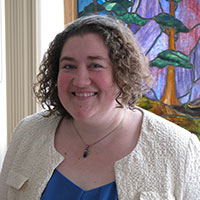
Individual differences in text processing and recall in children with and without ADHD
The current study examined whether children with and without ADHD differed in text processing when contradictory information was present. Forty-seven children between 10 and 14 years old performed a self-paced reading task. Half the passages contained contradictory information. Additionally, language and cognitive skills were assessed to examine the relationships between text processing and individual differences in these abilities (working memory, oral sentence recognition, verbal and non-verbal intelligence, word reading fluency and decoding ability). Results indicate that the non-ADHD group modulated their reading behaviour based on the presence of inconsistent information, whereas the ADHD group did so in response to the consistent information. However, this task effect in the ADHD group was primarily observed with children who scored low on background measures (e.g., verbal intelligence, working memory). Additionally, the children with ADHD recalled fewer units of information than their non-ADHD peers. Correlations demonstrated that the pattern of relationships between the text comprehension measures (i.e., true-false test and text recall) and the background measures differed between the two groups, such that measures were more closely associated with each other in the ADHD group. Results are discussed in terms of educational implications to support children with ADHD who experience reading comprehension difficulties.
Learn Moreabout Individual differences in text processing and recall in children with and without ADHD
Teachers’ Perceptions of Implementing Ontario’s Right to Read Report’s Recommendations
In 2022, the Ontario Human Rights Commission released the Right to Read Report that outlined 157 recommendations for literacy instruction in Ontario, Canada. For educators, these recommendations included using structured literacy in their classrooms. The present study investigated teachers’ perceptions of how difficult implementing these recommendations would be and what they saw as facilitators and barriers. Teachers reported that starting structured literacy practices would be easier than both stopping current practices (e.g., cueing, running records) and providing more intensive instruction or intervention to struggling students. They also noted that initial teacher training programs need to do more to prepare teacher candidates. They identified teacher training, classroom resources, funding, and teacher beliefs as the factors that can serve equally as facilitators and barriers to successful implementation. Recommendations are offered by teachers to ease a shift towards structured literacy practices.
Learn Moreabout Teachers’ Perceptions of Implementing Ontario’s Right to Read Report’s Recommendations
Rooted: A Publication on Indigenous Law
Genderwashing is the process whereby organizational rhetoric differs from the lived experiences of workers, creating the myth of gender equity in the workplace. Genderwashing in Leadership considers how the process of genderwashing highlights hidden biases in organizational policies and procedures, and patriarchal cultural practices. International scholars from diverse areas such as leadership, organizational studies, sociology, and education explore how genderwashing occurs from various perspectives, including leadership, power and privilege, identity, and career recruitment and selection. Uncovering epistemological assumptions that underpin and sustain genderwashing practices, the ways in which genderwashing intersects with embodiment and intersectionality and how genderwashing policies and practices restrict women’s advancement into leadership, the editors host a space for dialogue and debate. The Transformative Women Leaders Series is published in collaboration between the International Leadership Association (ILA) and Emerald Publishing. Celebrating women leaders and the leadership styles they employ to achieve success, the books in this series highlight successful context-specific leadership approaches and the moral qualities of endurance.
Learn Moreabout Rooted: A Publication on Indigenous Law
K-12 global/international education: dancing with “diversity, democracy, and social justice”
For more than a century, distinct forms of global/international education have emerged across diverse national and local contexts. Despite their heterogeneity, it is possible to discern some similar features in regards to the larger visions of global/international education as well as to their real-world manifestations finding expression under the larger sweep of Eurocentric modernity. This article takes a conceptual and analytic approach in suturing the vocabularies, aims, practices and challenges of these multiple trajectories of global/international education with specific focus on the tensions arising out of the normative aspirations of teaching for “diversity, democracy and social justice” in the K-12 domain.
Learn Moreabout K-12 global/international education: dancing with “diversity, democracy, and social justice”
STEM Education Through Global Perspectives: An Overview
Improving a country’s high-quality talent requires a strong educational foundation for children and youth. Globally, science, technology, engineering, and mathematics (STEM) education is viewed as essential for preparing students to compete in the economy of the twenty-first century and has become the driving-force behind many educational movements (Akcan et al., 2023; Blackley & Howell, 2015; Freeman et al., 2019). Be aware, STEM is not a separate education reform movement from other science education reform efforts; rather, it is an emphasis that stresses a multidisciplinary approach for better preparing all students in STEM subject areas and increasing the number of post-secondary graduates who are prepared for STEM occupations (Conference Board of Canada, 2013; National Research Council (U.S.A), 2013). STEM education reforms vary globally as not all reform efforts use similar strategies or have similar goals (Freeman et al., 2019; Mudaly & Chirikure, 2023; Wilson, 2013). Some occur through top-down approaches and are in response to policy and often impose changes on classroom teachers, leading to failed reform efforts (Coburn, 2003).
Learn Moreabout STEM Education Through Global Perspectives: An Overview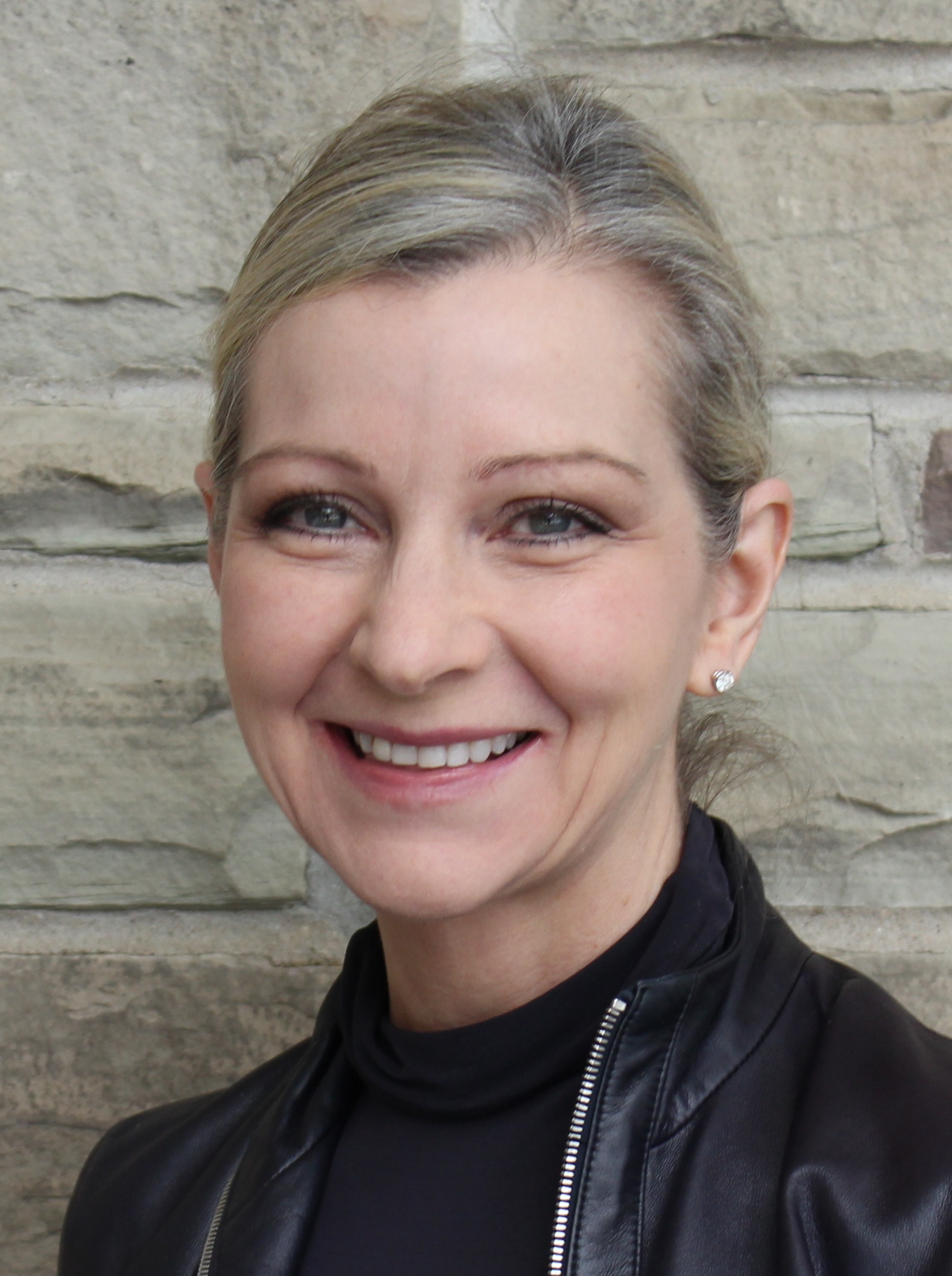
Heeding the Call of an Innovative Paradigm for Mental Health Interventions in Low- and Middle-income Countries
The provision of mental health care for people living in low- and middle-income countries presents a particularly complex problem because of fractured service availability and provision, widespread stigma associated with mental illness, and the economic burden inherent in conventional mental health service delivery. People with serious mental illness in these settings are among the most marginalized in their societies and are at risk of becoming increasingly powerless in the face of top-down, service-oriented systems. Innovative intersectoral approaches that are based on asset development and entrepreneurism and that embrace the power of peer-driven networks hold promise to effect transformative and meaningful change.
Learn Moreabout Heeding the Call of an Innovative Paradigm for Mental Health Interventions in Low- and Middle-income Countries
The CREATE strategy of rehabilitation and recovery for mental illness in low resource settings: Development processes and evaluation from a proof of concept study in Kenya
A significant burden and treatment gap associated with serious mental illness (SMI) exists in low- and middle-income countries (LMIC). In order to address these issues, a range of community-based rehabilitation models in alignment with the Capabilities Approach is necessary, including opportunities for people with SMI to be rapidly engaged in meaningful work within their communities. This paper outlines the development processes and evaluation of the proof of concept for the Community REcovery Achieved Through Entrepreneurship (CREATE) strategy in Kenya. The CREATE strategy pairs Work Integration Social Enterprises (WISE) with a focused, low-cost, recovery-oriented Psychosocial Rehabilitation (PSR) toolkit within a peer involvement/support model as a means of addressing marginalization and fostering health, wellbeing, and participation of people living with SMI. Qualitative research methods were used to understand the experiences of a range of stakeholders involved in CREATE implementation in Kenya. Three overarching themes explicated the experiences of the various stakeholders involved: (1) experiencing a business like other businesses – yet different; (2) expanding capacities, opportunities, and networks through meaningful work; and (3) promoting knowledge and empowerment through education. Within each theme, there was evidence of the attenuation of central elements of marginalization. The CREATE strategy demonstrated acceptability and a variety of potential positive impacts in a low resource setting in Kenya. Application of the CREATE strategy to other low resource settings within Kenya and other LMIC merits further exploration.
Learn Moreabout The CREATE strategy of rehabilitation and recovery for mental illness in low resource settings: Development processes and evaluation from a proof of concept study in Kenya
Evaluating the feasibility and potential impacts of a recovery-oriented psychosocial rehabilitation toolkit in a health care setting in Kenya: A mixed-methods study.
bjectives: This pilot study evaluated the feasibility and potential impacts of delivering the Psychosocial Rehabilitation (PSR) Toolkit for people with serious mental illness within a health care setting in Kenya. Method: This study used a convergent mixed-methods design. Participants were people with serious mental illness (n = 23), each with an accompanying family member, who were outpatients of a hospital or satellite clinic in semirural Kenya. The intervention consisted of 14 weekly group sessions of PSR cofacilitated by health care professionals and peers with mental illness. Quantitative data were collected from patients and family members using validated outcome measures before and after the intervention. Qualitative data were collected from focus groups with patients and family members, and individual interviews with facilitators, after the intervention. Results: Quantitative findings indicated that patients experienced moderate improvement in illness management and, in contrast to qualitative findings, family members experienced moderate worsening in attitudes toward recovery. Qualitative findings revealed positive outcomes for both patients and family members, as reflected in greater feelings of hope and mobilization to reduce stigma. Factors that facilitated participation included: helpful and accessible learning materials; committed and involved stakeholders; and flexible solutions to promote continued involvement. Conclusions and Implications for Practice: This pilot study found that delivery of the Psychosocial Rehabilitation Toolkit was feasible within a health care setting in Kenya and associated with overall positive outcomes among patients with serious mental illness. Further research on its effectiveness on a larger scale and using culturally validated measures is needed. (PsycInfo Database Record (c) 2023 APA, all rights reserved)
Learn Moreabout Evaluating the feasibility and potential impacts of a recovery-oriented psychosocial rehabilitation toolkit in a health care setting in Kenya: A mixed-methods study.
Guest editorial: From intent to action: new directions in women and leadership research
The impetus for this special issue emerged from the planning and implementation of an international women and leadership academic colloquium held online in June 2021. The theme, “From Intent to Acton,” was designed to encourage and illustrate the ways in which new global scholarship is emerging that is intent to advance scholarship in diverse fields related to women and leadership (Gardiner et al., 2020). Our objective was not only to highlight key themes in women and leadership research and practice but also to envisage new theoretical and methodological approaches intentionally designed for actionable results to effect change.
Learn Moreabout Guest editorial: From intent to action: new directions in women and leadership research
Cross-Sector Partnerships to Address Societal Grand Challenges: Systematizing Differences in Scholarly Analysis
Research on how cross-sector partnerships (CSPs) contribute toward addressing societal grand challenges (SGCs) has burgeoned, yet studies differ significantly in what scholars analyze and how. These differences matter as they influence the reported results. In the absence of a comprehensive framework to expose the analytical choices behind each study and their implications, this diversity challenges interpretation and consolidation of evidence upon which novel theory and practical interventions can be developed. In this study, we conduct a systematic review of scholarly analysis in CSP management studies to develop a framework that contextualizes the SGC-related evidence and reveals scholars’ analytical choices and their implications. Conceptually, we advance the term ‘SGC interventions’ to illuminate the black box leading to SGC-related effects, thus helping to differentiate between transformative versus mitigative interventions in scholars’ analytical focus. Moreover, the framework stresses the logical interplay between the framing of the SGC-related problem and the reporting of the intervention's effects. Through this, we juxtapose what we call problem-centric versus solution-centric SGC analysis and so differentiate between their analytical purpose. We discuss the framework's implications for advancing an SGC perspective in scholarly analysis of CSPs and outline avenues for future research.
Learn Moreabout Cross-Sector Partnerships to Address Societal Grand Challenges: Systematizing Differences in Scholarly Analysis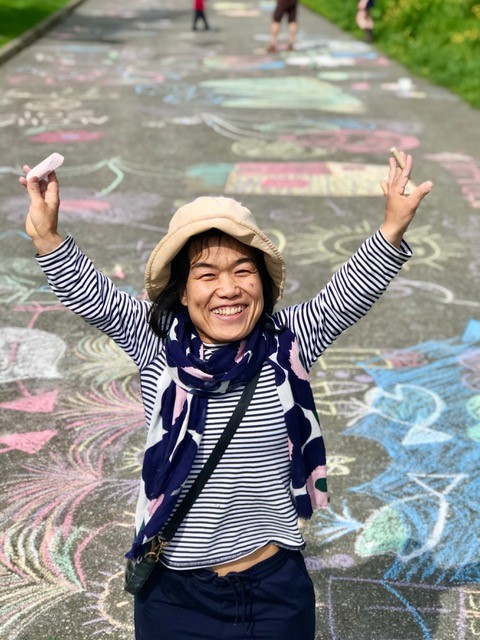
My responsible stewardship of the place: The mother tree taught me how
Mitsy incorporated her own a/r/tographical living inquiry (Springgay, Irwin, & Kind, 2005) into her daily walk from September 1, 2018, to August 31, 2019. She used the A/r/tography research method, because “practice-based research is situated in the in-between, where theory-as-practice-as-process-as-complication intentionally unsettles perception and knowing through living inquiry” (Irwin, & Springgay, 2008, p.xxi). In this chapter, she shared her yearlong learning in relation to four topics. Firstly, how we, humans, can live and share space with nature and wild animals under the First people’s perspective (ELF, 2019). Secondly, how we can meet and live with children in a common world (Taylor, 2013) perspective. Thirdly, how her neighbours have been reimagining, reorienting, returning, and respecting the place with their open minds (Harraway, 2016; McCoy. Tuck & McKenzie 2016). Fourthly, she reflected on her responsible stewardship of the place. She reflected on how her ways of making and engaging with her artistic, natural creation in the space retained or affected the quality and abundance of our land, air, water and biodiversity.
Learn Moreabout My responsible stewardship of the place: The mother tree taught me how
Walking with water
One day, on her walk, the sound and the movement of rushing water on a trail and waves in the ocean made her wonder whether, if her walking was the sum of her body and mind movements, the movements of water could also, metaphorically, be seen as its walking action. As Ingold (2016) argues, “movement should be in phase with, or attuned to, the movements of other phenomena of the inhabited world” (p.105). She stopped walking and attuned to the lines of the surrounding movements. How she “observe is not to objectify; it is to attend to persons and things, to learn from them, and to follow in precept and practice. [Her] participant observation, in short, is a practice of correspondence: a way of living attentively with those among whom we work” (Ingold, 2015, p.157) In this visual essay, Mitsy drew the readers’ attention to how photographic images of movements might provoke readers to pose questions about how mindful walking might be considered as “thinking in [lines of] movements” (Ingold, 2013, p.98). In addition, this idea of walking with water and visual images will provoke and evoke new “potentials for living with/in the world” (Irwin et al., 2018, p.50).
Learn Moreabout Walking with water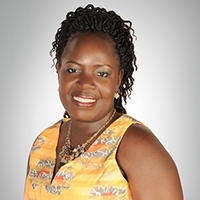
Exploring global competencies through a math and CP lens
Mathematics “is an important tool or ‘language’ in constructing, explaining, and interpreting the globalized world” (Schell-Straub, 2013, p. 10). Global competencies and development goals are in policy documents, but there is very little research on the integration in k-12 mathematics. Research question: How can mathematics, coupled with coding and digital tools, help students investigate global issues such as environmental sustainability, economic disparities, and equity? The theoretical framework adopted is Kafai and Burke’s (2014) Computational Participation (CP) which involves shifting from i) code to actual applications, ii) tools to communities, iii) starting from scratch to remixing, and iv) screens to tangibles. We conducted a cross-case qualitative analysis. There were two research sites, an in-school and an outof-school site. For the in-school international research site, we observed the participants in their natural setting (naturalistic paradigm). For the out-of-school domestic site, the research team developed the curriculum, for an outreach STEAM camp, through an iterative process (design-test-revise-repeat, Design-Based Research). At the in-school site, students repurposed recyclable tangible materials in an upcycling and shoe design project. They created 3D digital/physical models using geometric and trigonometric concepts. At the out-of-school site, students created a blueprint for a sustainable home with renewable energy in a screen designing software, Tinkercad, exploring concepts such as rotation in the x, y, and z-axis, scaling, and 3D mathematical modelling. Students also coded and programmed tangible circuits (created a prototype of the servo motor to generate wind energy). They thought about angles, parallel and perpendicular lines, and conditional statements.
Learn Moreabout Exploring global competencies through a math and CP lens
STEAM and Critical Making in Teacher Education
In the context of literature on STEAM and critical making (Ratto, Inform Soc 27(4):252–260, 2011), we present three case studies which explored the integration of the disciplines represented in the STEAM acronym (science, technology, engineering, arts, mathematics) as a way to help more preservice teacher candidates learn about important mathematical concepts. We asked: (1) How do preservice teacher candidates engage with concepts related to mathematics when a STEAM-based, maker education approach is used in the learning process? And (2) What do preservice teacher candidates learn about teaching mathematics when a STEAM-based, critical maker education approach is used in learning about teaching? The frameworks of constructionism and low-floor/high-ceiling learning theories, humans-with-media in STEAM, and critical making are presented to help conceptualize maker education, STEAM, and critical making in teacher education.
Learn Moreabout STEAM and Critical Making in Teacher Education
School and Community Practices of Computational Thinking in Mathematics Education through Diverse Perspectives
In the 21st century, computational thinking (CT) has emerged as a fundamental skill. Building on this momentum and recognizing the importance of exploring the use of computational thinking (CT) concepts and tools in teaching and learning, this study conducted a qualitative content analysis to investigate online resources for school and community outreach practices related to integrating CT and coding into mathematics education. The data set was selected from sample websites hosting a community of practice and interpreted through Kafai et al.’s (2020) framings of CT and a combination of three theories of learning and teaching (i.e., constructionism, social constructivism, and critical literacy). The study found that in mathematics, more attention is given to the cognitive approach of CT, which focuses on acquiring CT skills and concepts, rather than the situated approach that emphasizes participation during learning. Additionally, there is not enough emphasis on the critical framing of CT, which examines how learning reflects values and power structures. The study’s significance is grounded in enhancing the perspectives of researchers, educators, and policymakers by providing insights into the wide affordances of CT which meet and exceed the expectations of curriculum content and skills. In light of the recent attention paid to adding coding to the new mathematics curriculum, in Ontario, Canada, this study contributes to the literature, practice, and curriculum development on the integration of CT into school mathematics and serves as a basis for future research in the field.
Learn Moreabout School and Community Practices of Computational Thinking in Mathematics Education through Diverse Perspectives
Reimagining the Mathematics Curriculum Through a Cross-Curricular and Maker Education Lens
Despite the positive impact of maker education on student learning, challenges towards its implementation in formal school settings still exist. There is limited research on maker education in teacher education programs and a lack of knowledge on how to integrate it into the mathematics classroom. To address these issues, the following research questions were examined: What is the nature of the productive design features of maker education for teacher candidates? What are the benefits and challenges of these opportunities for teacher candidates learning to teach mathematics? The methods used were a case study interlinked with design-based research. A total of 114 teacher candidates participated in the study. The research findings have implications for educators who design/implement maker education curricula into STEM courses. For educators and researchers, the maker education opportunities from this study contribute to further re-imagining learning competencies, pedagogy, and resources in teaching mathematics and other STEM disciplines.
Learn Moreabout Reimagining the Mathematics Curriculum Through a Cross-Curricular and Maker Education Lens
Computational Thinking Workshop: A New Way to Learn and Teach Mathematics
In this digital era, technology has entered every aspect of our life, including educational system. Computational thinking (CT) and programming are a relatively recent part of certain school curricula. The idea of CT was originated in 1950s, and the first usage of the term CT was by Papert in 1980; the notion/concept was refreshed by Wing in 2006. CT is the focus of attention for many researchers, such as Gadanidis , Namukasa, Kotsopoulos, Curzon, diSessa, Farris, Sengupta and so on ; they argued that using CT tools, ideas and activities in mathematics pedagogies and curricula contributes to learning in creative and imaginative ways. In this paper, the ways that students interact with their peers during CT and mathematical thinking activities are investigated in the context of an instrumental case study of 10 elementary students. Observational, interview, and reflection data collected during two workshops were analyzed to determine the ways in which the activities impacted students’ interacting and understanding. Students engaged in three CT activities: symmetry app, Scratch program, and Sphero robot. As a result, CT activities allow students to learn mathematical concepts better, when they are working with CT ideas and activities. This study was limited in its sampling as it only focused on primary grades 3 - 6 in a private school. For future studies, the researchers suggest conducting a study that will include public schools and involve tools for teaching mathematics concepts.
Learn Moreabout Computational Thinking Workshop: A New Way to Learn and Teach Mathematics
STEAM Camp: Teaching Middle School Students Mathematics, Science and Coding through Digital Designs
In this study, we explore how to teach mathematics, science and coding through digital tools, design projects, and global competencies. We explore the question: How do upper elementary school children develop an understanding of mathematics and science coupled with coding through digital design? The theoretical framework adopted for this study is Kafai and Burke’s (2014) definition of Computational Participation: a shift from code to actual applications; a shift from tools to communities; a shift from starting from scratch to remixing; and a shift from screens to tangibles. We conducted a qualitative case study interlinked with Design-Based Research. Both STEAM camps were an outreach program for students in grades 4-8 in Ontario, Canada. The two camps were designed and facilitated by a research team from the Faculty of Education. The research team developed the curriculum through an iterative process (design-test-revise-repeat). There were 43 students registered in the STEAM camps, and 34 of them participated in the study. We collected observation, interviews, audio/video recordings, and survey data as well as pictures of the students’ work. Our main findings were that students were provided with opportunities to: 1) develop a deeper understanding of curricular concepts; 2) engage more with the digital tools when they were remixing, improving, and reimaging the design; and 3) apply their knowledge to global competencies. The findings of this research have implications for improvements in researching, designing, and implementing design projects as part of a pedagogical approach to teaching mathematics and science, coupled with coding, in an interdisciplinary context.
Learn Moreabout STEAM Camp: Teaching Middle School Students Mathematics, Science and Coding through Digital Designs
A pedagogical model for STEAM education
Certain researchers have expressed concerns about inequitable discipline representations in an integrated STEM/STEAM (science, technology, engineering, arts and mathematics) unit that may limit what students gain in terms of depth of knowledge and understanding. To address this concern, the authors investigate the stages of integrated teaching units to explore the ways in which STEAM programs can provide students with a deeper learning experience in mathematics. This paper addresses the following question: what learning stages promote a deeper understanding and more meaningful learning experience of mathematics in the context of STEAM education? The authors carried out a qualitative case study and collected the following data: interviews, lesson observations and analyses of curriculum documents. The authors took a sample of four different STEAM programs in Ontario, Canada: two at nonprofit organizations and two at in-school research sites. The findings contribute to a curriculum and instructional model which ensures that mathematics curriculum expectations are more explicit and targeted, in both the learning expectations and assessment criteria, and essential to the STEAM learning tasks. The findings have implications for planning and teaching STEAM programs. The authors derived four stages of the STEAM Maker unit or lesson from the analysis of data collected from the four sites, which the authors present in this paper. These four stages offer a model for a more robust integrated curriculum focusing on a deeper understanding of mathematics curriculum content.
Learn Moreabout A pedagogical model for STEAM education
Mathematics and interdisciplinary STEM education: recent developments and future directions
This special issue introduces recent research on mathematics in interdisciplinary STEM education. STEM education is widely promoted by governments around the world as a way of boosting students’ interest and achievement in science, technology, engineering, and mathematics and preparing STEM-qualified workers for twenty-first century careers. However, the role of mathematics in STEM education often appears to be marginal, and we do not understand well enough how mathematics contributes to STEM-based problem-solving or how STEM education experiences enhance students’ learning of mathematics. In this survey paper, we present a narrative review of empirical and conceptual research literature, published between 2017 and 2022. These literature sources are organised by a framework comprising five thematic clusters: (1) interdisciplinary curriculum models and approaches; (2) student outcomes and experiences; (3) teacher preparation and professional development; (4) classroom implementation and task design; and (5) policy, structures, and leadership. We use the framework to provide an overview of the papers in this issue and to propose directions for future research. These include: investigating methods and rationales for connecting the constituent STEM disciplines so as to preserve the disciplinary integrity of mathematics; clarifying what is meant by student “success” in interdisciplinary STEM programs, projects, and other educational approaches; moving beyond classroom practices that position mathematics as just a tool for solving problems in other disciplines; understanding what makes a STEM task mathematically rich; and asking how STEM education research can productively shape STEM education policy.
Learn Moreabout Mathematics and interdisciplinary STEM education: recent developments and future directions
Technology maker practices in mathematics learning in STEM contexts: a case in Brazil and two cases in Canada
The act of making provides students with an opportunity to create and design by using materials and technologies. Scholars who examine learning through making maintain that maker approaches to solving problems, creating designs, and thinking about real-world ideas promote the development of abstract thinking skills, such as modeling, and computational thinking (CT) skills. Our goal is to research the use of specific methods of maker education—such as experimenting with tools and hands-on designs—in learning mathematics. We ask: what are the benefits and potential outcomes for designing and teaching learning activities which integrate technology maker practices and pedagogies in mathematics and other school concepts in STEM contexts? We analyzed qualitative data on the benefits and potential outcomes of maker practices and pedagogies from three cases in Canada and Brazil. The researchers designed and facilitated the tasks to study the experiences of participants. Participants were observed, interviewed (or asked interview questions via a questionnaire), and completed reflection prompts. Their activities were recorded. The results show that learning from maker practices and pedagogies augments the learning of individual STEM disciplines, with specific settings and activity designs offering varied foci on mathematics and technology, on science, engineering and mathematics, or on science, technology and mathematics. Students, preservice teachers and teachers benefit in cognitive, interdisciplinary and social (situated) ways. Further research is needed to explore how deeper and other benefits, including critical benefits, may be achieved for learning and teaching mathematics and to explore which practices and pedagogies are associated with more potential outcomes.
Learn Moreabout Technology maker practices in mathematics learning in STEM contexts: a case in Brazil and two cases in Canada
Exploring AR and VR Tools in Mathematics Education through Culturally Responsive Pedagogies
Augmented reality (AR) and virtual reality (VR) have been noted to enhance student learning by supporting spatial reasoning and visualization, long-term memory, engagement, increased motivation, and decreased anxiety. We will explore the following research questions: In what ways do AR and VR digital tools potentially increase student motivation and engagement when learning mathematics and coding in the classroom? What are teachers’ thoughts on the effectiveness or ineffectiveness of AR and VR technologies and culturally responsive practices in the context of mathematics education? We conducted a qualitative case study interlinked with Design-Based Research (DBR). Data were collected using surveys, interviews, observations, and documentation. There were 54 students and 7 adult participants. Students in grades three to eight, in a STEAM camp, applied mathematical thinking and modelling in a web-based design app, Cospaces Edu, to better understand abstract and complex mathematical concepts. This study provides a blueprint for how teachers can be mentored in creating and implementing AR and VR activities intertwined with storytelling and culture in the classroom. It highlights promising results when teaching mathematics concepts through AR and VR activities: students' motivation was boosted by the storytelling and game-like environment in Cospaces Edu which translated into more meaningful learning experiences.
Learn Moreabout Exploring AR and VR Tools in Mathematics Education through Culturally Responsive Pedagogies
Becoming competent global educators: Pre-service teachers’ global engagement and critical examination of human capital discourse in glocalized contexts
By investigating 28 pre-service teachers’ learning in a comparative and international education course at a Chinese university, this case study examined how to foster teacher students’ global competence, through their global engagement and critical dialogue with human capital discourse that focuses on measurement, competitiveness, and accountability for human capital building and quality. This study revealed that participants’ motives, efforts, and capability in acquiring global competence were affected by global human capital discourse. Results suggest teacher education programs use critical sociocultural pedagogy to empower teacher candidates to be involved in global engagement, learning, and interaction, challenge human capital discourse at global and local levels, critically reflect on sustainable, humanistic, and moral educational goals and take actions, and become competent global educators.
Learn Moreabout Becoming competent global educators: Pre-service teachers’ global engagement and critical examination of human capital discourse in glocalized contexts
Educational Improvement Science: The Art of the Improving Organization
To advocate educational improvement science (EIS) as an emerging transdisciplinary field, I reflect on the three major pathways of educational advancement in human history, discern the misuses and pitfalls of reform, and theorize how education can be improved to better serve its mission. Employing a multiperspectival approach, I critically re-examine educational reforms and improvements worldwide and conceptualize the emerging transdisciplinary field through an extensive literature review, etymological analysis, international comparisons, and socio-historical, -cultural and -philosophical reflections. In this paper, I advance the concept of neo-improvementalism for EIS by elucidating its philosophical assumptions, disciplinary fundamentals, and theoretical frameworks through historical and comparative lenses. I identify and construct disciplinary knowledge of EIS comprising two categories, namely, subject matter knowledge and profound knowledge, adopted from improvement science. I then highlight three methodological approaches of EIS and the building of professional improvement communities empowering individual and institutional improvement capabilities. I propose that EIS is the art of the improving organization for classes, schools, and/or more broadly defined educational agencies. This study recognizes the significance of EIS and research thereon, especially discipline-building and exploration based on local characteristics in a global vision, and the cultivation of new frontiers of educational research and practices.
Learn Moreabout Educational Improvement Science: The Art of the Improving Organization
Improving Education for a More Equitable World: Social Justice Perspectives
This paper delves into the reports, core discussions and outcomes of the 67th Annual Conference of the Comparative and International Education Society (CIES) held in a hybrid format in Washington, D.C. in 2023, focused on the theme “Improving Education for a More Equitable World.” In response to the CIES 2023 theme, Written Responses from global scholars, along with four special papers inspired by the Kneller Lecture and Keynote Speeches, have been published across four distinguished journals. This paper feature two Written Responses and one Keynote Speech, sparking discourse on enhancing education for a more equitable world. The first article is a keynote speech highlighting the crucial role of well-prepared teachers, stressing their absence perpetuates inadequate learning cycles. The next article underscores the shared responsibility of governments, businesses, and NGOs in steering educational reform toward a more inclusive and equitable future. The final paper underscores the importance of tackling inequity at its core by embracing the transformative power of interconnected love, oneness, empathy for a truly equitable world.
Learn Moreabout Improving Education for a More Equitable World: Social Justice Perspectives
Improving education for a more equitable world: Futurist perspectives
To many, education remains a dream of equal opportunities for all learners, regardless of their backgrounds and contexts. Confucius advocated 2500 years ago for education without discrimination (有教无类), a dream of education for all. This evolving vision was renewed right after WWII by the United Nations Universal Declaration of Human Rights, stipulating that everyone has the right to education. Although pioneers, like minority woman leader Patsy Mink, have long envisioned equal education with persevering efforts for the United States, the realities in the country and worldwide do not reflect this dream.
Learn Moreabout Improving education for a more equitable world: Futurist perspectives
#Exploratory Analysis Of Sentiment Toward ABA on Twitter
Naturalistic observation of verbal behavior on social media is a method of gathering data on the acceptability of topics of social interest. In other words, online social opinion may be a modern-day measure of social validity. We sought to gain an objective understanding of online discourse related to the field of applied behavior analysis (ABA). We analyzed Twitter posts related to ABA (e.g., #ABA, #BehaviorAnalysis, #appliedbehavioranalysis). Our initial sample consisted of 119,911 tweets from 2012 to 2022. We selected a random subset (n = 11,000) for further analysis using a stratified sampling procedure to ensure that tweets across years were adequately represented. Two observers were trained to code tweets for relevance and sentiment toward the field. A total of 5,408 relevant tweets were identified and analyzed, with an arithmetic mean of 492 tweets per year. Tweets were categorized as having neutral (51.41%), positive (43.81%), or negative (4.79%) sentiment. Negative sentiment tweets received approximately three times higher engagement scores compared to positive and neutral tweets. Positive sentiment tweets commonly used hashtags related to special education, therapy, behavior analysis, autism, and specific individuals. Negative sentiment tweets focused on the harmful effects of ABA, disability, variations of ABA, and promoting alternatives to ABA. Our results suggest that there is a small but vocal minority that has the potential to shape the narrative on ABA. We suggest a path forward for behavior analysts in the study of the online discourse on ABA.
Learn Moreabout #Exploratory Analysis Of Sentiment Toward ABA on Twitter
Differentiated instruction in digital video games: STEM teacher candidates using technology to meet learners’ needs.
Differentiated instruction (DI) is a teaching approach that aims to achieve learning for diverse students. This study reports on promoting STEM teacher candidates’ (TCs’) implementation of technology-enhanced DI in teacher education courses. The research questions are: (1) How do TCs develop digital video games (DVGs) to be inclusive of DI?, and (2) If, and to what extent are DVGs effective tools to implement DI in secondary science classes? The analysis of eight DVGs, developed by the TCs, shows that most TCs were able to proficiently integrate DI practices in their DVGs. Furthermore, DVGs are effective tools to differentiate instruction by facilitating pacing variation for different students, differentiating difficulty levels, scaffolding, integrating multimodalities to present the content in different formats, utilizing engaging features, representing different learners of various backgrounds, promoting conceptual understanding, and enabling different assessment forms especially formative and diagnostic assessments. This research is significant as it highlights how digital resources such as DVGs can be used to address individual learners’ needs, interests, profiles, and academic achievement levels. Additionally, this research informs instructional designers, game developers, and curriculum specialists on ways to incorporate equity, diversity, and inclusion pedagogies such as DI in digital educational resources.
Learn Moreabout Differentiated instruction in digital video games: STEM teacher candidates using technology to meet learners’ needs.
Empowering STEM teacher candidates to implement differentiated instruction in teacher education courses.
Differentiated instruction (DI) is an inclusive method of instruction by which teachers provide multiple possibilities for learning based on students’ backgrounds, readiness, interests, and profiles. Acknowledging student diversity in Canadian classrooms, this study explores STEM teacher candidates’ (TCs’) preparation to implement DI in a STEM curriculum and pedagogy course in a teacher education program. The course is enriched with DI resources and training focused on equity, diversity, and inclusion (EDI). The course efficacy in enhancing TCs’ implementation of DI is explored through the following research questions: (1) What is the impact of the course on TCs’ implementation of DI, (2) How do TCs develop curricula to be inclusive of DI strategies, and (3) What successes and challenges do TCs encounter when developing DI-focused curricula? The study adopts a mixed-method approach, in which data sources include pre-post questionnaires and semi-structured interviews. Participants are 19 TCs enrolled in the second year of the teacher education program at a Canadian university. Findings suggest that the course empowered TCs to integrate DI principles and strategies in their coursework. This success reiterates the importance of opportunities aimed at enhancing teachers’ preparation to incorporate DI in their practices. The findings call for adopting similar approaches in pre-service and in-service teachers’ training to ensure that DI principles and strategies are deeply rooted in teachers’ practices. The study informs teacher educators about integrating EDI in teacher education programs’ curriculum and overall planning.
Learn Moreabout Empowering STEM teacher candidates to implement differentiated instruction in teacher education courses.
Setting students up for success: Developing interdisciplinary skills in a medical sciences graduate program.
Acknowledging the importance of skill development in graduate programs, Western University in Canada developed an innovative master’s program in interdisciplinary medical sciences. The program aims to promote students’ academic, professional, and personal skills by engaging them in experiential and interdisciplinary learning that adopts an explicit and reflective approach in focusing on seven core skills: problem-solving, communication, leadership, critical reflection, working in diverse teams, project management, and decision making. This paper draws on the experiences and reflections of the inaugural cohort of students enrolled in the program to address the following research questions: 1) How does the MSc IMS program impact students’ skill development? and 2) How did students practise the seven core interdisciplinary skills outlined in the program? The study utilizes a mixed methods approach by collecting quantitative and qualitative data using pre- and post-online surveys administered to the students. The findings highlight the program's positive impact in terms of students’ reflection on their level of competence in the seven core skills, especially in complex problem-solving, oral and written communication skills, and critical reflection. Results also show that students specifically appreciated the contribution of experiential learning components of the program in advancing their skills. The paper emphasizes the importance of addressing students’ skill development in higher education in an explicit and intentional approach and engaging students in reflective practise on their skill development. Implications for the design and review of graduate programs are also discussed.
Learn Moreabout Setting students up for success: Developing interdisciplinary skills in a medical sciences graduate program.
The long-term impact of training on equity, diversity, and inclusion practices: Teacher candidates’ knowledge retention and future aspirations.
K-12 schools around the world are striving to practice equity, diversity, and inclusion (EDI) principles to provide effective learning opportunities for all students. At the classroom level, differentiated instruction (DI) is a teaching approach that addresses student diversities. This research focuses on important aspects of teacher training on equitable and inclusive strategies, being its long-term impact and teacher candidates’ (TCs’) retention of acquired knowledge and skills. This paper addresses the following research questions: 1) How do TCs implement DI in their school practicum after the training in the teacher education courses ends? 2) What challenges do TCs encounter upon implementing DI? 3) What are TCs’ long-term goals and aspirations of DI? and 4) What are effective strategies in EDI training in teacher education courses? The paper adopts a qualitative approach in which the data sources include a survey and semi-structured interviews conducted eight weeks after the end of a DI-focused course in the Teacher Education program. TCs’ responses highlighted how they implemented DI in their practicum, indicating retention of the acquired knowledge and skills. TCs also detailed how they plan on implementing EDI strategies in their future classrooms. This paper proposes a general framework for successful training of educators on EDI principles and practices such as DI. The framework’s essential elements are: 1) explicit and intentional training approach, 2) engaging trainees in reflective practice, 3) contextualization, specificity, and relevance of the training tasks, 4) providing ongoing feedback, and 5) collaboration and resource sharing among participants.
Learn Moreabout The long-term impact of training on equity, diversity, and inclusion practices: Teacher candidates’ knowledge retention and future aspirations.
Fostering an Entrepreneurial Mindset Through Project-Based Learning and Digital Technologies in STEM Teacher Education
This chapter explores the potential of STEM project-based learning (PBL) and digital video game (DVG) creation to support and integrate STEM and entrepreneurial competencies in teacher education. Specifically, the authors present and describe three STEM projects and three DVGs, with a focus on entrepreneurial and STEM skill development and growth mindsets in a curriculum and pedagogy methods course in STEM education. The authors maintain that in order for teacher candidates (TCs) to develop entrepreneurial and STEM literacies, they need to integrate entrepreneurial and STEM content and pedagogical knowledge to be able to effectively instruct, assess and design STEM curricula that can foster entrepreneurial skills and support future generations of learners. TCs engaged in several tasks utilizing principles of inquiry, design-based and experiential learning, and reflective practice that fostered entrepreneurial awareness and enhanced entrepreneurial competencies. Entrepreneurial growth is evident in the projects, as TCs provided extensions, thus creating value-added content beyond the scope of the initial assignment. These value-added extensions were also catalytic in developing an entrepreneurial growth mindset. The authors contend that teacher education programs, professional development initiatives, and key stakeholders have a pivotal role to play in developing and supporting students’ STEM and entrepreneurship competencies.
Learn Moreabout Fostering an Entrepreneurial Mindset Through Project-Based Learning and Digital Technologies in STEM Teacher Education
Outbreak Science: Implications for Teaching and Learning in STEM Classrooms
History is replete with countless lessons about pandemics in terms of their societal, scientific, and medical dimensions. COVID-19 is only the latest of these that has plagued the globe. As a result of COVID-19, emergency response teaching was implemented globally. Educational institutions temporarily closed and pivoted their learning to virtual environments, affecting almost 70% of the world’s student population. The transition to virtual environments challenged both teachers and students. Given the global pandemic, it is imperative that we reflect on what and how we teach. In this chapter, the authors discuss a number of pedagogical strategies, including digital games, mathematical modeling, case studies, problem-based and project-based learning, and science communication. These strategies can effectively integrate socioscientific issues into an outbreak science curriculum; one focused on the concerns of epidemics and global pandemics with the ultimate goal of enhancing students’ scientific literacy. Recommendations target teacher preparation and professional development initiatives and include opportunities for educators to engage with digital tools to enhance teacher competencies and subsequent self-efficacies through a technological pedagogical content knowledge (TPACK) framework. The authors in this chapter advocate for the professional development of educators in teacher education programs, so they become proficient in the use of the pedagogical strategies in science and elementary science/STEM classrooms.
Learn Moreabout Outbreak Science: Implications for Teaching and Learning in STEM Classrooms
STEMifying teacher education – A Canadian context
Teacher education should be instrumental in imparting best pedagogical strategies and providing opportunities for teachers to develop integrated STEM knowledge and skills. The lack of preparation is reflected in a lack of comfort by teachers in teaching the required STEM content. The author reports on her development of Canada’s first STEM teacher preparation program and discusses the STEM Specialty Focus and accompanying courses which highlight the nature and integration of the disciplines of STEM. Teacher candidates are provided with opportunities to deepen their understanding of STEM concepts and enhance STEM skills while developing STEM projects, digital video games, digital scientific timelines, interactive case studies focusing on contemporary socioscientific issues, and curriculum resource websites. Several affordances and challenges are outlined, including self-efficacy, explicit and meaningful integration of STEM disciplines, and a lack of a robust technological pedagogical content knowledge (TPACK). The latter has implication for digital literacies in teacher education, as spotlighted during the COVID-19 pandemic.
Learn Moreabout STEMifying teacher education – A Canadian context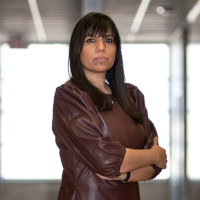
Effects of school-level and area-level socio-economic factors on elementary school student COVID-19 infections: a population-based observational study
Aims: We examine the relationship between socio-economic factors of schools and those of the areas within which schools are located on COVID-19 elementary school student infections. We examine: (1) whether the proportion of students from marginalised socio-economic backgrounds in an individual school had an effect on the cumulative incidence of elementary school student infections in that school; (2) whether the proportion of households from marginalised backgrounds in a defined area had an effect on the cumulative incidence of elementary school student infections across schools in that area. Results: We used a multilevel modelling approach to estimate the effects of socio-economic factors at the school and area levels on the cumulative incidence of elementary school student laboratory confirmed SARS-CoV-2 infections in Ontario for the 2020-21 school year. At the school level (level 1), the proportion of the student body from low-income households was positively associated with cumulative incidence (β=0.083, p<0.001). At the area level (level 2), all dimensions of marginalisation were significantly related to cumulative incidence. Ethnic concentration (β=0.454, p<0.001), residential instability (β=0.356, p<0.001) and material deprivation (β=0.212, p<0.001) were positively related, while dependency (β=-0.204, p<0.001) was negatively related. Area-related marginalisation variables explained 57.6% of area variability in cumulative incidence. School-related variables explained 1.2% of school variability in cumulative incidence. Conclusions: The socio-economic characteristics of the geographic area of schools were more important in accounting for the cumulative incidence of elementary school student infections than individual school characteristics. Schools in marginalised areas should be prioritised for infection prevention measures and education continuity and recovery plans.
Learn Moreabout Effects of school-level and area-level socio-economic factors on elementary school student COVID-19 infections: a population-based observational study
The Overreliance on Portable Classrooms in Ontario Schools: New Evidence for the Study of Austerity and Disinvestment in Canadian Public Education
This study investigates the extent of portable classroom use in the province of Ontario between the years 2010 and 2020. The findings reveal that portable classrooms are used as long-term solutions to address enrolment pressures in schools, which is symptomatic of the austerity-driven policies in the funding of Ontario’s public education. In addition to providing new evidence of the effects of funding cuts in education, this study repositions infrastructure planning as a critical concern for education policy research.
Learn Moreabout The Overreliance on Portable Classrooms in Ontario Schools: New Evidence for the Study of Austerity and Disinvestment in Canadian Public Education
Exploring the Significance of ‘Place’ for Culturally Sensitive Research
We adopt a culturally sensitive approach to investigate the participation of immigrant parents in schools. We analyse how a group of immigrant mothers negotiated new spaces for participating in their children’s education while continually reshaping their sense of place.
Learn Moreabout Exploring the Significance of ‘Place’ for Culturally Sensitive Research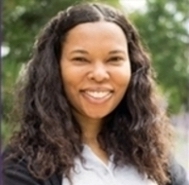
First Nations & Indigenous identities in education
This chapter discusses the history and experiences of Indigenous Peoples in Canada. It looks at the ways in which Indigenous nations taught their youth, and how Indigenous Peoples and their pedagogy was suppressed by the imposition of Eurocentric educational systems and practices. Despite these historical and continued acts of structural violence which have been forced on Indigenous people in the settler-colonial Canadian state, Indigenous People continue to develop and build their own education and intellectual systems, and exercise leadership and governance to enhance the well-being of their youth and of their communities.
Learn Moreabout First Nations & Indigenous identities in education
Indigeneity
Indigenous People live in many countries throughout the world and have their own specific and distinct names which they use to refer to themselves. Often, the names by which Indigenous Peoples' call themselves reflect their Land, identity, cultures, and worldviews. This chapter introduces the concept of Indigeneity and its relatedness to being Indigenous. While the term Indigeneity carries and reflects multiple meanings to different people across the globe, this chapter focuses on three connected and interlinked frameworks, including Indigenous Peoples' relationship to their Lands, their education systems, and Indigenous philosophy of Reciprocity. Together, these help to frame a broader understanding of Indigeneity.
Learn Moreabout Indigeneity
Behavior Analysts’ Relationship to Relating Relations: A Survey on Perceptions, Acceptability, Knowledge, and Capacity for Derived Stimulus Relations Research and Practice
The study and application of procedures that result in stimulus relations via relational frame theory (RFT) and stimulus equivalence (applied as equivalence-based instruction; EBI), have made tremendous strides in contemporary behavior analysis. However, applications at scale lag basic and translational research. We turn our attention to investigate potential causes. We replicated and extended Enoch and Nicholson (2020) by conducting a survey of behavior analysts (n = 129) to determine their perceptions, experiences, and barriers in carrying out research and practice based on RFT and EBI. Participants indicated an interest in RFT and EBI, and mostly perceive both within the scope of behavior analysis. A majority of behavior analysts reported formal education in EBI (78.3%), in contrast to a minority in RFT (15.5%). Adoption of procedures derived from RFT and EBI may be in proportion to formal education. Compounded with a lack of accuracy on basic knowledge questions, there is a potential gap in capacity in the field in addressing behavior related to complex verbal behavior.
Learn Moreabout Behavior Analysts’ Relationship to Relating Relations: A Survey on Perceptions, Acceptability, Knowledge, and Capacity for Derived Stimulus Relations Research and Practice
The role of self-efficacy beliefs and inclusive education beliefs on teacher burnout
Our study investigated whether teachers’ beliefs about teaching & learning and their beliefs about their own self-efficacy predicted burnout. Data from 62 Ontario teachers found that while self-efficacy was associated with lower burnout, greater teacher-controlled beliefs, emphasizing grades and beliefs that learning ability is fixed were associated with higher burnout. Additionally, teachers who had higher self-efficacy and endorsed student-centered approaches reported less burnout. This study identified teacher belief profiles that are associated with level of burnout.
Learn Moreabout The role of self-efficacy beliefs and inclusive education beliefs on teacher burnout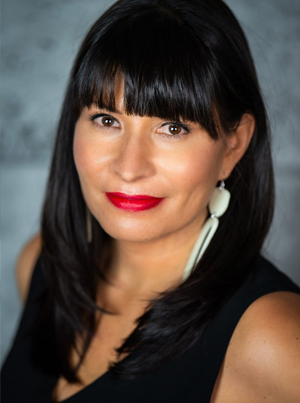
Indigenous refusals in educational leadership practices in Canadian universities.
Since the Truth and Reconciliation Commission of Canada released 94 calls to action in 2015, Canadian universities have responded in numerous ways. A particularly significant response has been the creation of Indigenous Initiatives Offices and the appointment of senior leaders to help lead transformative institutional change efforts. Many of these new administrative appointments report directly to presidents and provosts, and have been taken up by Indigenous women. In this article, I present five key findings from research that explored the experiences of 12 Indigenous women administrators working in Canadian universities. The study highlighted how these Indigenous women enact Indigenous refusals as part of a transformative decolonial leadership praxis in universities
Learn Moreabout Indigenous refusals in educational leadership practices in Canadian universities.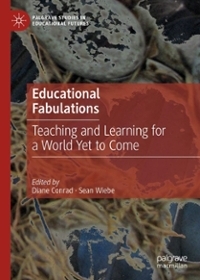
Educational Fabulations: Teaching and Learning for a World Yet to Come
Includes a collaborative publication by four Faculty PhD students. Co-authors: Sarah Hennessy, PhD; Malvika Agarwal; Adrianne Bacelar de Castro; Carla Ruthes. This highly original collection presents speculative fiction as fiction-based research to re-imagine education in the future. Given the particular convergence of economic and governmental pressures in educational institutions today, schools represent imaginative sites especially well-suited to interrogation through an SF lens. The relevance for education of the exploration and interrogation of themes related to technology, human nature, and social organization is evident; yet the speculative fiction approach is unique in its harnessing of creative capacities to envision alternatives. The contributions in this collection are generated from educational experience and research, drawing on scholarship in curriculum studies and teacher education and on the authors' experiences and imaginations as teachers, teacher educators, educational scholars, and human beings.
Learn Moreabout Educational Fabulations: Teaching and Learning for a World Yet to Come
